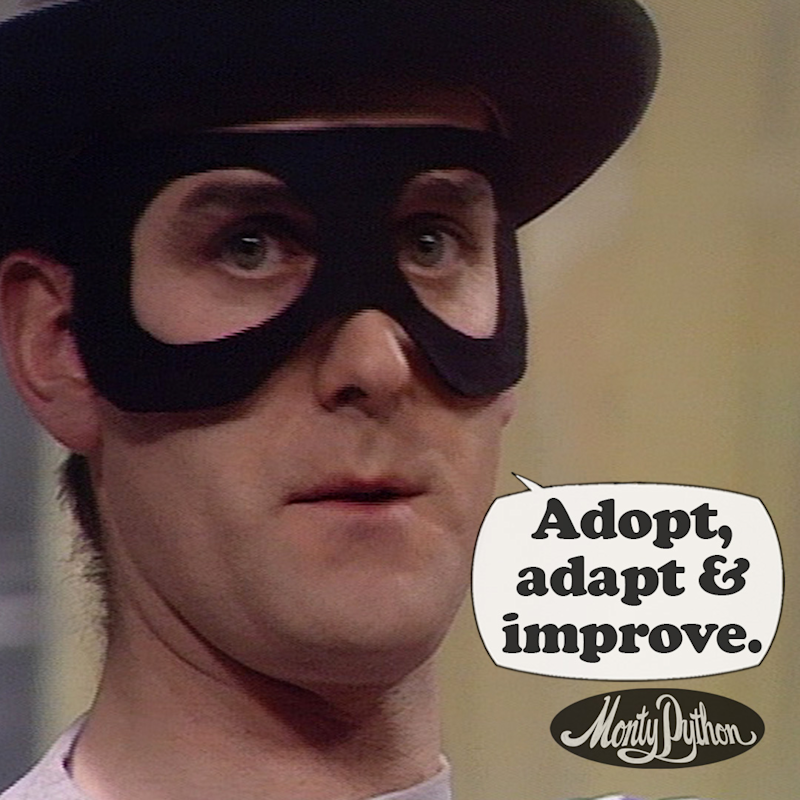To be blunt, I’m not one for silicon valley product management ideologies. I don’t buy endless praise of how silicon valley does proper product management, and I disagree with most of the criticism of how product approach in Europe is subpar.
Once I sat in a product event, where the speaker, an adamant, almost arrogant product coach from silicon valley rumbled about the problems they saw in European companies when it comes to product development. I never knew one could generalise to that extent. But between 2015 and 2017, I had spoken with product managers from various sorts of silicon valley companies myself. Many of those companies have long ceased operation. Not due to Covid or economical crisis, they simply didn’t achieve product market fit. Although silicon valley product coaches make their methodologies sound so full of wonder, companies there don’t always succeed. In stead, I’m more convinced of a practical approach to product development.
Theories are not for practitioners
Back in Uni days, financial accounting was one subject that gave me the most migraine, due to the sheer number of principles and equations to remember and apply. But one thing our professor said not only relieved me from the agony, but also guided me through numerous complex cases in life afterwards:
It’s only meaningful to learn the principles in order to understand how the science came about. In reality, you will hardly directly apply theories.
In product management, many do like to apply theories. But since theories aren’t made for real world applications, there comes the attack on frameworks and methodologies. “Agile doesn’t work”, for example.
To make it work, make it work for your own organisation. Too often people pull out the framework card and cite how it worked for other companies, without firstly observing and reflecting on the situation of their own organisation. This can cause a big loss of opportunity.

Visionaries are practical as well
If you have screened a large number of product manager CVs for hiring, you’d notice how everyone sees themselves as a visionary. There’s a line in most PM’s CV that they “owned the product vision”. Arguably that could be a good thing to put in your CV to demonstrate that you see the bigger picture. But if everyone is a owning the product vision, who’s doing the actual work?
The truth is, to be a visionary, you need to be practical. It’s good to have a well crafted vision statement and get the buy in from the organisation, but in reality, you’ll hardly have the full picture of the market.
There are bits and pieces of unknown and hypothesis and bets in every step and decision making. The sensible way forward is to practically invest and learn as we go. Sometimes there’s no time to thoroughly consider ICP (Ideal Customer Profile). We either go in a market now or there won’t be a chance later. In that case what’s the smallest chunk of product offering we can package to test the market.
Sometimes we’ve developed all the right features but the product didn’t take off in the target market. Here’s one thing that Monty Python can teach us: Adopt, adapt and improve.

Choose practical tools
There’s not a lack of product management tools, from roadmap management, usage analytics, to onboarding, etc. If a tool is what you need next, choose the one that offers the practicality best suits your organisation. airfocus is known to be the first and most flexible product management tool in the market that works for any type of product team (no matter how complex teams get with multiple products). It’s not only a tool that’s developed by practitioners, and experienced product people, but also used by the people who built it, aka dogfooding.

If you need more information, here is a list of 36 product management tools compared to help you make an informed decision that works for you.
In summary, we are all trying to make the best bet for our product based on the information we have. If a few theories and frameworks can inspire us on the way, we don’t mind applying from a practical standpoint. If pursuing the grand picture doesn’t deter us from making the time-sensitive decisions, we want to be visionaries. And if tooling can come to our rescue, we can definitely benefit from the flexibility and convenience.

Eva Hongyan Gao

Read also


Create effective product strategy

Experience the new way of doing product management





